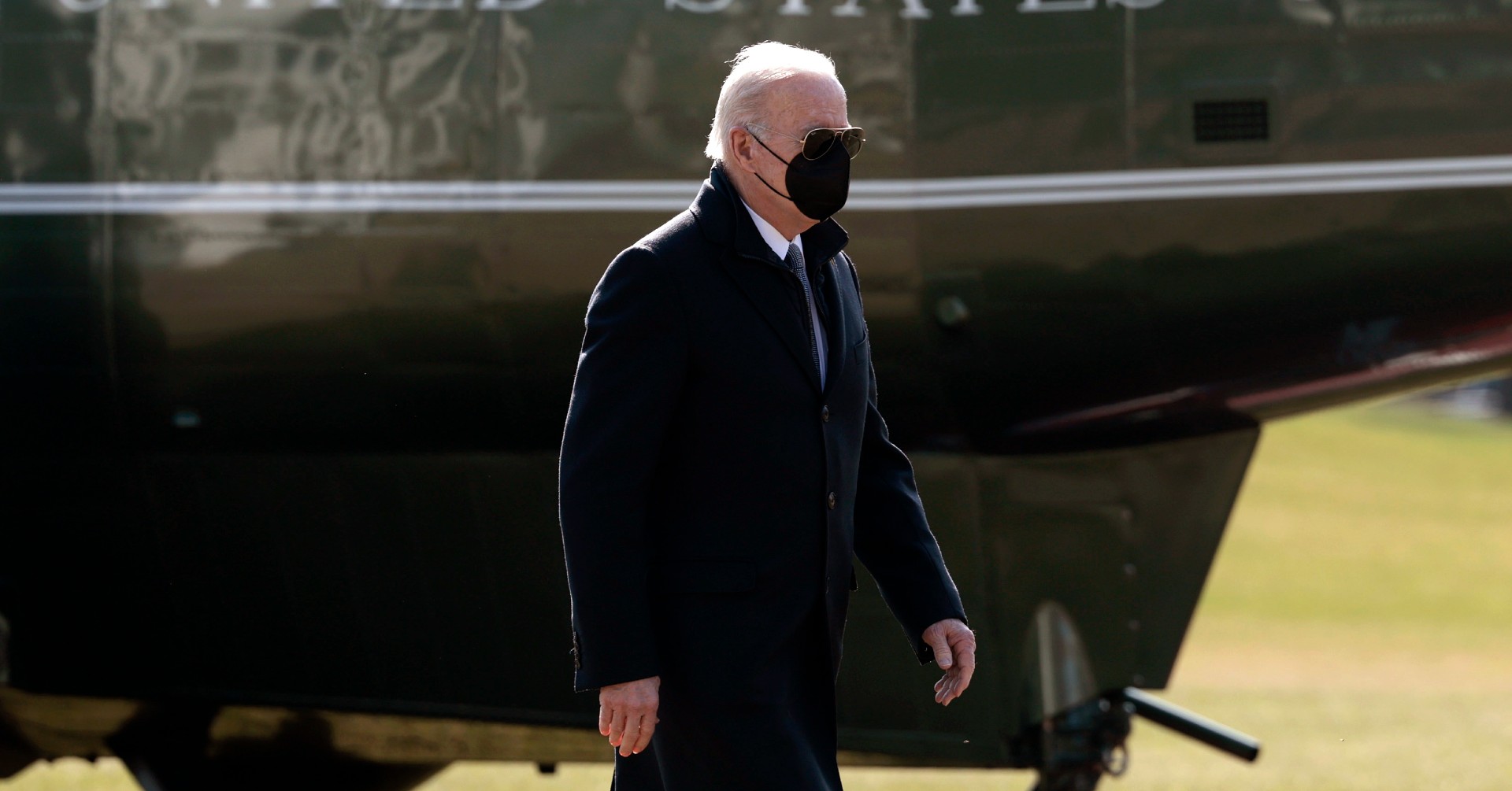OPINION: This article may contain commentary which reflects the author's opinion.
President Joe Biden did not answer questions on Monday from reporters when they attempted to ask him about the Russia-Ukraine crisis.
Biden returned to the White House on Monday after spending the weekend back home in Delaware.
His response to arguably one of the biggest issues facing the world right now? Nothing. Biden did not stop to answer any questions from reporters about the conflict in Eastern Europe.
REPORTER 1: “Mr. President, is Ukraine winning the war?”
REPORTER 2: “Mr. President, do you believe Putin will use nuclear weapons?”
REPORTER 1: “Mr. President, are you worried about nuclear war?”
WATCH:
President Biden arrives back at the White House after spending the weekend in Delaware. Biden did not stop to answer questions from reporters about the conflict in Eastern Europe. https://t.co/r1UJDrlCmK pic.twitter.com/kiSb7vc5aW
— The Hill (@thehill) February 28, 2022
Ukrainian and Russian officials arrived at the Ukraine-Belarus border on Monday to begin “peace talks.”
Ukraine’s Defense Minister Oleksiy Reznikov is leading the delegation to the peace talks in the Gomel region.
“The Biden administration announced Monday morning that Russia’s central bank will be prohibited from undertaking transactions in dollars under a new concerted effort by the U.S. and its allies, a move that is set to accelerate Russia’s economic tailspin,” Axios reported.
The German government also announced it will provide weapons including anti-tank missiles to Ukraine as its forces continue to battle against Russian troops.
German Chancellor Olaf Scholz made the decision on Saturday, in what was a historic shift away from the decades-old policy of never sending weapons to active conflicts.
Germany had come under withering pressure from NATO and the European Union to step up and help out the Ukrainians whose military is badly outmatched by superior Russian firepower and technology, not to mention sheer numbers of professional troops:
From its own stockpile, the German government will send 1,000 anti-tank weapons and 500 Stinger anti-aircraft defense systems to Ukraine. The government has also authorized the Netherlands to send Ukraine 400 rocket-propelled grenade launchers and told Estonia [to] … send nine howitzers.
A government spokesperson said the weapons will be delivered “as soon as possible.”
Until Saturday, Germany had stuck to its longstanding practice of not permitting lethal weapons that it controlled to be transferred into a conflict zone.
That stance bewildered some European officials, even more so after Russian President Vladimir Putin ordered a full-scale invasion and launched missile strikes on Kyiv, the Ukrainian capital.
“The Russian invasion of Ukraine marks a turning point,” Scholz said in a statement. “It threatens our entire post-war order. In this situation, it is our duty to do our utmost to support Ukraine in defending itself against Vladimir Putin’s invading army. Germany stands closely by Ukraine’s side.”
The major policy reversal may be the beginning of a rapid and significant increase in military assistance for Ukraine, whose civilian population has been pressed into military service by President Volodymyr Zelenskyy, himself choosing to remain in his country to meet the Russian onslaught rather than accept offers to evacuate him.
That’s because a major portion of weaponry and ammunition on the European continent are at least partially manufactured by Germany, which in turn has given Berlin legal control over how and when they can be transferred.
That said, Politico noted further that the reversal won’t mean carte blanche transferring of weapons; each case will be considered and decided on an individual basis.
“Before Saturday’s turnaround, senior Ukrainian officials had been complaining bitterly for weeks about Germany’s refusal to allow arms shipments to bolster Ukraine’s defenses,” the outlet reported.
“Estonia, in particular, had said it wanted to send old howitzers but was prevented from doing so because Germany was withholding its approval. Estonia bought the weapons from Finland, which gave its sign-off, but Germany also has to OK the transfer because it originally sold the howitzers to Finland,” the report continued.
Ukrainian and some European officials were angered by the delay at the time.
In response, Germany only offered to send 5,000 helmets and a field hospital to Ukraine, “a meager contribution hat has been the subject of some derision considering that Germany is the biggest and wealthiest EU country,” noted Politico.
